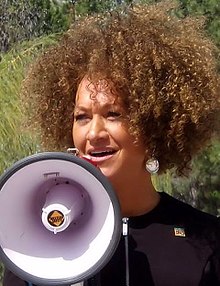Yes, the position is contrary to some trans people's thoughts and opinions on the matter. What moral high ground do you believe I set myself in? Holy crap, Yoda, don't give me that. If I didn't say anywhere in this thread that trans people who don't see this the way I do are invalidated, I don't know where am I supposed to be insulting them.
There's a lot of strange assumptions here and it's a little difficult to unpack them all. For one, you seem to think that if you have not "invalidated" someone's opinion, they cannot be insulted. I don't think that's true. You also seem to think I've accused you of setting yourself up on some "moral high ground," which I didn't say (and don't think is necessarily a problem!), but which also seems intrinsic to the act of criticizing anyone on an issue like this.
I noted that some trans people would be insulted by you making a distinction between women and trans women. That's it. I didn't say you "invalidated" their opinion or personally attack you for this, I noted it to make it clear that this wasn't a standard "advocate vs. non-advocate" disagreement, but actually a lot more nuanced and complicated than most of these kinds of disputes.
You were saying "cartoonish" which I quite easily interpret as comedic. Because there's nothing "cartoonish" in Harry Brandon playing a Navajo character in The searchers.
Yeah, in this context it's just a synonym for "caricature." Anyway, if it's a misunderstanding, that's fine. I think we're on the same page now.
Anyway I'm not talking about inherence. Among other things because it's not on me to talk about inherence here.
Sure, that's not what you're talking about. But it's what
I'm asking about, and it seems like a pretty fair thing to ask; Johansson playing a trans woman is not like blackface because her portray may or may not be thoughtful, but blackface never is. That's what I'm saying. If you feel the comparison to blackface is valid, it would seem to logically necessitate that you think Johansson is doing something equally irredeemable, which also has no potential way to be thoughtful.
Either way, people who think this is inherently problematic probably deserve to be heard as much as we've ended up hearing racialized people stand against whitewashing. That's the point, there is a debate.
I agree with that.

Eh... the definition has been revised a lot in the last years and decades.
Revised from what to what? Any examples would be helpful.
I stand with the idea that gender is defined by aspects of social, cultural and personal identity
What aspects, though? That's the actual question. Obviously if I ask how this aspect of identity is defined, it's circular to say it's based on "aspects of...identity." Saying "social, cultural and personal" is just listing categories the answer might come from.
which has therefore a psychological component beyond the purely sociological one, and perhaps, depending on the person, a physiological one.
You're suggesting the definition can be totally different from person to person? Isn't that the same thing as saying there is no definition?
But I'm not saying that it's offensive!
Okay, good to know. I didn't realize that, but that clears things up a bit.
I'm saying that it's the result of inequal standards and opportunities.
And where I stand regarding trans characters is that they should be able to get roles or at least to be considered for them.
I don't think too many people disagree with the idea that they should be "considered." Usually they bristle at the idea that they're entitled to a certainly level of representation regardless of how many trans actors there even are, how experienced they are, etc. You may not be saying this, of course, but I think that's the only version of this most people have any issue with.
Well, I have said that the issue with trans rep is probably comparable with ethnic rep in terms of growing social awareness. It's just a different argument I also made. So I apologize for the confusion. It's just that what you quoted in particular wasn't about that.
No worries. A few of the things I'm saying are direct arguments, but most of my post is, as you can see, just clarifying things, so thanks for clearing this up.
I mean, yes, this is true. But transgender characters are also a very slight minority among the many fictional roles in the Hollywood industry.
Aye. I agree there are very few roles about trans people in general. I'm not sure if that's inherently a problem, either, simply because I think this issue is talked about in a way that is wildly out of proportion to the number of people it describes. That, and I'm not generally a fan of making checklist comparisons about representation levels in the aggregate, especially since I know from experience that people level those accusations without knowing the numbers, and somehow don't care even when the numbers actually align.
The issue with using the "on behalf" (is it "on behalf" or "in behalf"? I can't make up my mind) is that... well, all of us would do in this debate as long as we take a position and have an opinion. I just think it's a bit of accusatory rhetoric that is not really necessary if the intent to portray opinions as one's own is made clear.
Hmmmm, sorry then. I don't really see why it would feel like an accusation, but either way, it's not meant as one. It seems, like a lot of the other stuff, to simply be a relevant thing to note. Especially given the inverse principle floated by most advocates that the actual members of a minority group be listened to more by virtue of belonging to that group.
 ) playing a Navajo character in The searchers.
) playing a Navajo character in The searchers.

